Read below to find out about Growing Your Own Herbal Medicine With Chanchal Cabrera

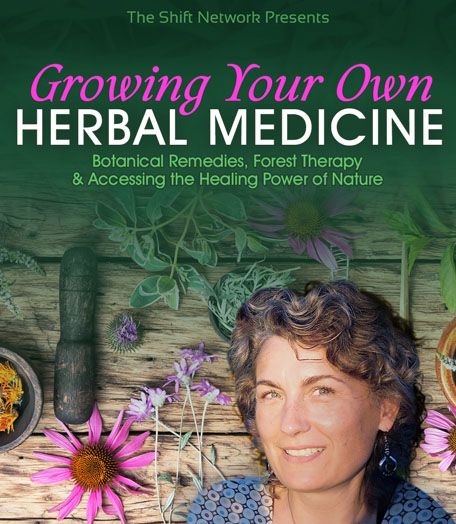
Chanchal Cabrera
Discover how to use horticulture therapy — gardening and growing plants — to harvest herbs and process them into herbal medicines.
Explore combinations of herbs to grow for a range of concerns — from colds and flu to menopause, indigestion, and insomnia.
Receive tools and methods for practically applying natural healing principles for self-care.
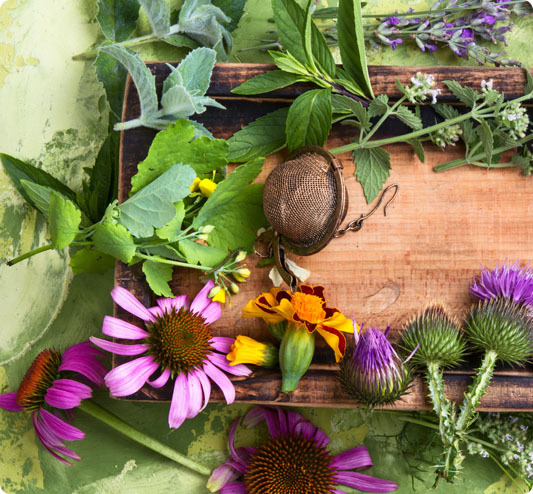
Would you like to literally take your family’s health into your own hands by creating your own herbal medicines from the plants growing in your garden?
Tapping into the inherent healing powers of botanicals, nature, and all that is alive and vital is one of the most effective actions you can take for self-care and radiant health.
You may already be aware of the magical, mystical, and often miraculous ability of plants to heal our bodies, minds, and souls...
After all, for thousands of years, ancient systems of natural healing, such as botanical medicine, Ayurveda, and Chinese medicine, have proven that plants have remarkable healing properties that can help transform your life’s journey.
This knowledge is vital to navigating the many stressors of life, from work to the challenges of aging. Proper use of medicinal plants can help make you more centered, healthy, and vibrant — rebuilding your immune system and detoxifying your organs and tissues.
That’s because herbs replenish and restore your body’s health and vitality by supporting its inherent metabolic processes of strengthening, toning, and rebuilding.
And these healing, transformative benefits are as close to you as your own garden.
Yet that’s not all plants have to offer us. If you enjoy spending time in nature, and basking in the calming and restorative atmosphere of forests, wildlands, and other natural areas, you’ve experienced firsthand that plants can put you into a state of deep communion with the natural world.
Simply being in their presence is healing and rejuvenating. We gain physical and mental benefits from plants while walking in the woods... while tending our gardens... from improved air quality due to trees and plants thriving in the neighborhood... and the list goes on and on.
Plants are the vehicles that bring us the energy of the sun and the nutrients of the soil that we need for life. Understanding their therapeutic powers gives us a deeper cosmological view and a more dynamic relationship with the life force around us.
Medicinal plants in particular can help us cultivate more prana or chi, and heal and harmonize our bodily systems.
Truly, plants are to people as water is to plants — simply indispensable.
Access Nature’s Medicine Cabinet
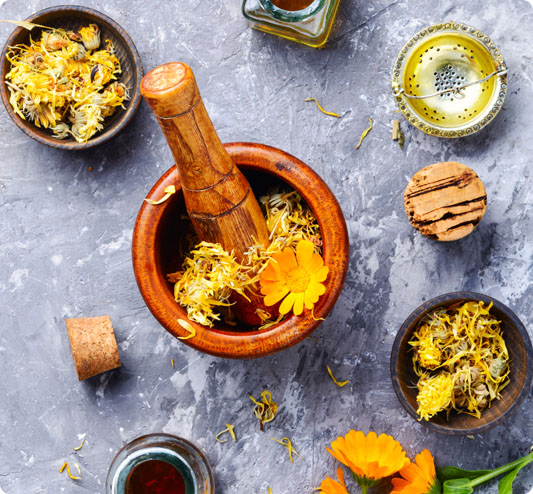
If you’re looking to deepen your knowledge (or learn for the first time!) how to prepare herbal remedies for yourself and your family, Growing Your Own Herbal Medicine is the ideal way to get started.
It’s easier than you think to grow your own personalized herb garden. You can do it on any scale, from a big farm... through a community garden... through a little box in your front yard... all the way through to your balcony if that’s all you have. With a bit of creativity and imagination, you’d be surprised at how much you can grow no matter what your resources are.
And with basic tools and methods for practically applying the natural healing properties of homegrown botanicals, you may be able to avoid prescription medications for sleep challenges, colds and flus, immune disorders, menopause, indigestion, and other health conditions.
There are an infinite number of ways you can bring plants into your life and use them safely and effectively to enhance your wellbeing. So it’s no surprise that three out of four people in North America use herbal medicines on a regular basis — be it turmeric for arthritis, St. John’s wort for depression, ginkgo for memory, or any of a myriad other herbs to manage and improve their health.
Even common weeds like dandelion, plantain, and horsetail can be effective remedies and have powerful healing effects. Wait a minute... isn’t plantain a weed? Indeed it is, but a big healthy clump of plantain with nice juicy leaves is a medicine chest unto itself... it can dry mucus, clear the sinuses, and so much more.
So says Chanchal Cabrera, a medical herbalist, master gardener, and horticulture therapist with 35 years of clinical experience. And in Growing Your Own Herbal Medicine, Chanchal will share her vast knowledge about how to select, grow, harvest, process, and use simple but effective botanical remedies that allow you to tap into the healing power of the natural world.
For example, there are a number of ways to treat colds and flu with botanicals. Goldenrod and sage are also effective for sinus congestion, clogged-up ears, and stuffiness. Thyme, echinacea, and garlic are also wonderful allies.
If you’d like to use herbs to sleep better, California poppy is an excellent sedative. To banish stress and anxiety, you can rely on blue vervain, valerian, and wood betony. And don’t forget dandelion leaf, a diuretic that can address heart concerns by helping to reduce fluid in the body and also lower blood pressure a bit.
The list of helpful herbs you can grow for women’s health issue is virtually endless. Raspberry leaf, yarrow leaf, and lady’s mantle are especially helpful in managing menstruation, while motherwort is cooling, calms the heart, and reduces the heat of menopause, as does sage. And believe it or not, licorice is an effective hormone-balancing herb.
Not only is growing your own herbal remedies easy and fun, herbs and other plant medicines offer us health, beauty, and the opportunity to create an intimate relationship with the Earth — one based on mutual respect and care.
You’ll do more than learn about these herbal remedies, you’ll actually spend time with Chanchal in her gardens and in the nearby forests via video so you can actually see the numerous herbs, vegetables, and flowers growing there — and explore their identifying features and uses. You’ll also join Chanchal in the dispensary attached to her clinical practice to see where she compounds and formulates medicines for patients.
Come Home to Yourself
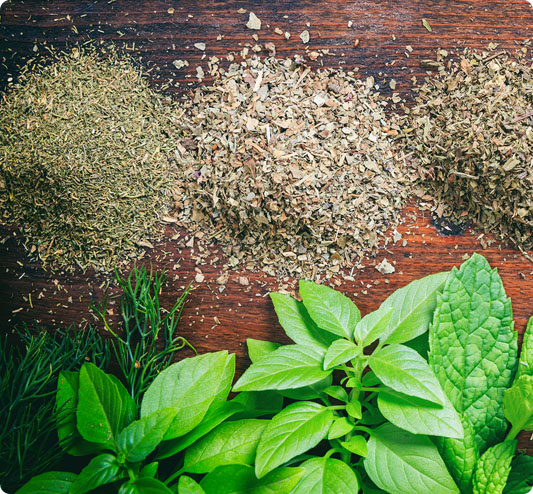
Herbs are critical for not just your personal health but for planetary health as well. Connecting deeply with these living, growing “beings” offers you an opportunity to not only better know a plant’s healing qualities and growing requirements, it can nurture your mind, body, soul, and Mother Earth.
Creating your own custom-made herb garden opens you to a healing beyond the physical — one that touches the gardener and growing place. You view the soil and Earth as living organisms, and you are nurturing that which is nurturing you.
What’s more, the plant “kin-dom,” as Chanchal likes to call it, fosters sustainability and builds resilience in communities. And while plants are essentially collections of chemistries, they are also energetic entities, obeying the laws of nature and integrating themselves into an ecosystem that shapes, informs, and nurtures them, and which they in turn shape, inform, and nurture.
Growing your own herbal medicines also makes a political statement by empowering you to be more autonomous and self-reliant. Indeed, the daily use of herbal remedies enables you to better care for yourself, your family, and your community.
And from a spiritual perspective, expanding your herbal wisdom connects you to herbalists and healers throughout the ages who have called upon the healing power of plants.
Ultimately, says Chanchal, when we connect with the deep sentience, wisdom, and healing power within the plant “kin-dom,” our eyes are opened to new realms of knowledge, and we come home to our bodies and our lives in a different way.
During the 7-module program, you’ll:
Discover herbs for enhancing memory, mental clarity, and inner harmony Examine roots that support detoxification, digestion, balance, and immunity Study herbs for relaxing the nervous system and promoting sleep Explore herbs for soothing agitation, anxiety, heart palpitations, and grief Discover remedies to help women heal and thrive during different cycles of their lives Be given instructions for harvesting herbs and processing them into herbal medicines More deeply understand why herbal medicine matters for you and your family Examine the science and evidence behind natural medicines Be given tools and methods for the practical application of nature’s healing principles in self-care Explore biophilia — the inherent resonance and connection we feel with plants, with nature, and all that is alive and vital Find out how to use gardening and growing plants for horticulture therapy Explore combinations of herbs to grow for a range of concerns — from colds and flus to menopause, indigestion, and insomnia Understand how to ensure the quality of herbs — and why how they’re grown, gathered, prepared, and stored affects their vitality and therapeutic benefits Understand herbal dosages and safety considerationsWhat You’ll Discover in These 7 Modules
In this 7-module transformational intensive, Chanchal will guide you through the fundamental skills and competencies you’ll need to successfully grow your own herbal pharmacy.
Each training session will build harmoniously upon the previous ones so you’ll develop a complete holistic understanding of the practices, tools, and principles you’ll need to use horticulture therapy to grow, harvest, process, and store herbal medicines.
The teachings in this course are fully pre-recorded to offer you the full range of not only Chanchal's teachings, but on-location footage from her incredible Botanic Garden and healing farm.
Module 1: The Science and Art of Herbal Healing
Discovering and Deepening Your Intimate Relationship with Plants Through Plant Attunement (July 3)
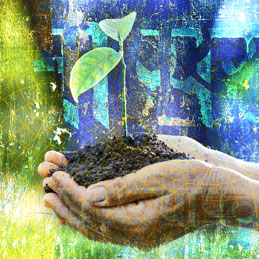
Connecting deeply with these living, growing “beings,” including the soil, offers you an opportunity to not only better understand a plant’s healing qualities and growing requirements, it can nurture your mind, body, soul, and Mother Earth. When you’re attuned to a plant’s essence or “spirit,” you’re awakened to how its energies and life cycles synergize with yours.
Chanchal will open this session with a 15-minute practice designed to help you deepen your relationship with plants — whether you’re out in your garden or at your kitchen table with a potted plant. This practice will help you communicate with plants and tune in to hear what they have to teach us.
This module will be filmed outside on Chanchal’s farm to create an intimate and immersive experience. Come with paper and pen, pencil, or crayons because drawing the essence of the plant of your choice will be part of the practice.
In this module, you’ll discover:
- Why subjective study is as important and as useful as objective study
- How to see past the science to the essence of the plant
- Techniques for practicing plant attunement meditation
- How to use expressive art practices to tap into the meaning of the plant meditation
- The 7-stage process for interpreting the gesture of a plant
- How to build a deeper relationship to plants and to translate that into healing practices and herbal medicine
Module 2: Medicines From the Garden
Common Garden Plants Used for Health & Healing (July 10)
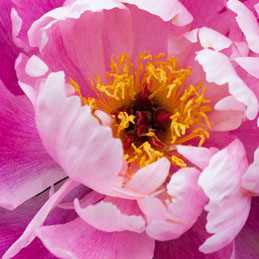
Many plants we commonly grow in the flower garden or vegetable garden can be used for health and healing. Some are for quick-fix acute care while others serve as tonics or normalizers. Some may generally be considered foods, but the dividing line between food and medicine is mostly just about intention and dose or dosage form. Herbalists use rosemary, sage, roses, peonies, garlic, and honeysuckle as medicines as well as enjoying them in the garden and the kitchen.
In this engaging walk through the gardens at Innisfree Farm, we’ll explore numerous herbs, vegetables, and flowers, exploring their identifying features, uses, and actions.
We’ll discuss applications, doses, and safety.
In this module, you’ll discover:
- How to identify some common garden plants and herbs
- Key actions and medicinal uses of at least 5 garden plants
- Key actions and medicinal uses of at least 3 vegetables
Module 3: Harvesting, Drying, Processing & Storing Herbs
How to Handle & Manage Herbs for Optimal Quality and Potency (July 17)
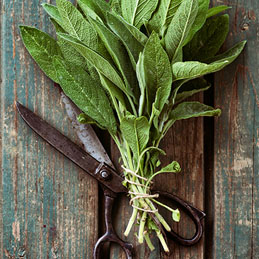
Knowing when and how to harvest herbal medicines is critical to making good remedies and getting good results with your herbs. In this practical class session, we’ll demonstrate and discuss the times and techniques for harvesting leaves, flowers, seeds, barks, and roots.
This class will be held partly outdoors — you’ll join Chanchal in her gardens and in the nearby forests to see the herbs growing there and witness the proper techniques of harvesting.
Drying herbs properly is also critical to making a good medicine, so we’ll discuss how to do this at home, as well as how to process and properly store the herbs. We’ll also consider sustainability and ecology, best tools, drier boxes, and more.
In this module, you’ll discover:
- Practical, take-home skills for harvesting leaves, roots, barks, and flowers
- How to clean, strip, and process herbs
- How to dry herbs for preservation of active constituents
- Techniques and methods for best results
- Methods for storing and keeping your herbs
- Rules and regulations in the marketplace
Modules 4-5: Setting Up & Managing Your Herbal Dispensary
Quality Control & Good Manufacturing Practices for Herbalists (July 24 & 31)
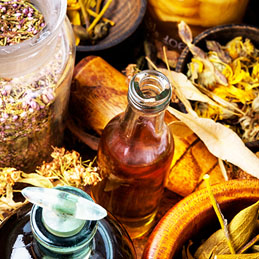
From personal dispensary to full-scale factory, there are numerous principles and practices that ensure safety, accuracy, and accountability in herbal medicine. They’re the least a consumer expects of anyone making medicines, whether on a large commercial scale or just you taking items to the local farmers market; and they’re mostly also required by law. Even if you only ever make products for your own home use with friends and family, you still want to be assured of consistency, quality, and purity.
This extensive review of herbal dispensary guidelines — which are mostly common sense and often scaled up from simple kitchen health and safety guidelines — will show you all the tricks of the trade that a professional herbalist exercises to make the best possible remedies. With charts and tables, and fully referenced, it will give the budding herbalist the tool kit required to make medicines and manage a home dispensary.
Via video, you’ll join Chanchal in the dispensary attached to her clinical practice — the place where she compounds and formulates medicines for individual patients. You’ll see her working documents for tracking the quality and purity of incoming herbs and outgoing herbal products. Chanchal will guide you in field and farming practices, harvesting and processing practices, how and where adulteration or contamination can occur and how to recognize it, hazard mitigation, traceability and transparency, and regulations and requirements of law. In a practical session between these two modules, students will learn to apply organoleptic skills to raw herbs.
In these modules, you’ll discover:
- Why quality control and good manufacturing practices matter no matter what scale you operate at
- Methods and tools for safety, quality assurance, and traceability in making herbal medicines
- How to use organoleptic assessment (the senses) for quality control of personal herb purchases
- Hazard Analysis Critical Control Points
- How to use a hand lens to look for herb quality
- How to read Certificates of Analysis and Certificates of Good Agricultural Practices
Module 6: Sacred & Medicinal Trees
Ancient Medicines for Modern Times (August 7)
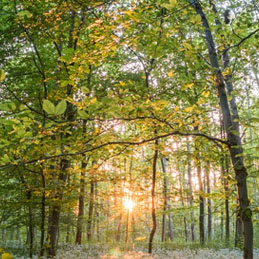
Dozens of trees are regularly used by herbalists around the world — willow, oak, walnut, hawthorn, ginkgo, to name just a few. All over the world, trees and tree products yield medicines for us to use, both herbal remedies and pharmaceuticals. Many parts of trees can produce medicines — leaves like ginkgo and willow, root barks like sassafras, inner bark of the trunk like oak and alder, flowers like linden, berries like hawthorn, and even nuts like walnut and horse chestnut. Trees are also sacred medicines or can be used in rituals (e.g., sandalwood, palo santo, and cedar).
This class will be held as a “herbal walk” though Innisfree Farm to look at trees growing in the Botanic Garden grounds. The grounds are a green oasis, a tranquil haven with a unique collection of trees. Meeting sweet gum, hawthorn, fringe tree, cedar, yew, rowan, willow, and more, we’ll explore the many ways that trees can help us.
In this module, you’ll discover:
- Why trees are critical to ecosystems and to planetary and human health
- How to use a range of local and indigenous trees as well as foreign and exotic trees for health and healing
- An appreciation for some mythologies and folklore built up around certain trees
Module 7: Wild Weeds & Native Plants as Medicines
The Medicines Under Your Feet (August 14)
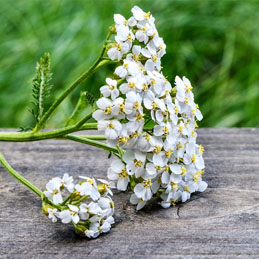
People today do most of their traveling sealed up tight in little metal boxes on wheels, whizzing along at considerable speed, divorced from the landscape and seeing plants as nothing more than a blur of green. This is a great shame, given that plants offer us a great wealth of food and medicine if you know what to look for. On this woodland walk, we’ll discuss guidelines for safe harvesting and the safe use of weeds found all around us.
In this module, you’ll discover:
- How to identify common weeds as well as wild herbs and trees
- How to key out a plant in an identification plant guide book
- Key actions and medicinal uses of wild plants, including black cottonwood, balsam poplar, blackberry, bleeding heart, burdock, elderberry, horsetail, plantain, salmon berry, St. John’s wort , Western red cedar, willow, yarrow, and yellow dock
The Growing Your Own Herbal Medicine Bonus Collection
In addition to Chanchal’s transformative 7-module virtual course, you’ll receive these powerful training sessions with leading visionaries and teachers. These bonus sessions complement the course and promise to take your understanding and practice to an even deeper level.
Growing Your Own Herbal Medicine: A Self-care Home Herbal First Aid Kit in Your Garden
Audio Dialogue With Chanchal Cabrera and David Crow
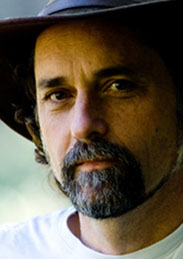
Join Chanchal Cabrera, medical herbalist, master gardener, and horticulture therapist, as she shares her wisdom on how to take control of your own health by growing the herbs you need. She shows you how to grow a personalized herb garden — including building the soil and choosing the plants. She offers advice about the size and color of plants that are most suited to your needs and the seasons, describing which plants to grow for health conditions such as immune disorders, sleep challenges, and digestion issues. And she discusses techniques for harvesting your herbs and keeping them safe.
Fibromyalgia: A Journey Toward Healing
Video Teaching From Chanchal Cabrera
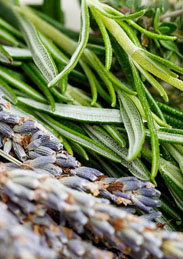
Fibromyalgia: A Journey Toward Healing offers hope and help to the 6 million+ Americans who suffer from this condition. With its holistic approach, it shows how you can achieve lasting wellness and healing through changes in diet and lifestyle and by using herbs. Numerous self-help remedies as well as advice on exercise, physical therapy, and aromatherapy are presented. As Chanchal tells the story of her own struggles with the condition, she shares practical strategies for healing and being well.
Culinary Herbs as Medicines
Video Teaching From Chanchal Cabrera
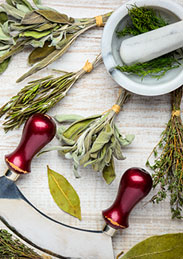
From sage for sore throats to mint for indigestion and thyme for infections, horseradish for cold feet and rosemary for poor memory, the kitchen garden can be a great resource of potent remedies. Walking through the culinary herb garden and the vegetable garden at Innisfree, we’ll explore a range of edible plants that are also medicines.
Here’s What You’ll Receive
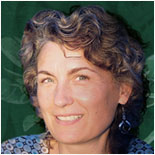
Seven 90-minute recorded Class Sessions With Chanchal Cabrera
Experience a rare opportunity to be mentored and learn with pioneering medical herbalist Chanchal Cabrera — from the comfort of your own home. Each class session guides you to discover the specific skills and abilities to awaken your healing potential.

Seven PDF Transcripts of Class Sessions
In addition to the high-quality videos and MP3 audios, you’ll also receive the entire class transcription in PDF format after each session is completed. You can then review, print, and highlight the most important insights and practices you were given.

Exercises and Questions for Each Lesson
Between class sessions, you’ll have the option of completing related exercises, practicing new tools, and answering questions to accelerate your learning and integrate each lesson.
The Growing Your Own Herbal Medicine Bonus Collection
- Growing Your Own Herbal Medicine: A Self-care Home Herbal First Aid Kit in Your Garden
Audio Dialogue With Chanchal Cabrera and David Crow
- Fibromyalgia: A Journey Toward Healing
Video Teaching From Chanchal Cabrera
- Culinary Herbs as Medicines
Video Teaching From Chanchal Cabrera
An Unprecedented Opportunity to Join the Growing Your Own Herbal Medicine Virtual Training
We feel honored Chanchal Cabrera has chosen to partner with The Shift Network to offer this exclusive online training. This is a rare opportunity to learn from renowned medical herbalist whose powerful natural healing principles and practices are helping us heal and awaken ourselves and our world.
Through this powerful online format, you’ll not only save time and money on workshop costs (plus travel, accommodations, and meals — which would cost thousands of dollars), you’ll be able to benefit from Chanchal’s incredible teachings and exercises from the comfort of your home — and at your own pace!
If you’re serious about transforming your natural healing practices, then you owe it to yourself, your loved ones, and our world to take this one-of-a-kind training.
If you’re ready to take the next step in evolving yourself, click the register button below to reserve your space now.
What People Are Saying About Chanchal Cabrera...


“Chanchal will truly touch every one of her students”
Engaging and passionate, with an unparalleled knowledge in all things herbal medicine, Chanchal will truly touch every one of her students. From biochemistry to plant energetics, from forest bathing to growing your own medicine, Chanchal has truly expanded my knowledge of herbal medicine and also my life... She’s certainly one of the best herbal medicine instructors in Canada, if not the world. Chanchal is the anchor that has made my herbal medicine knowledge and training what it is today.
— Shawn Peters, BA, RHN, naturopathic medical student, Boucher Institute of Naturopathic Medicine


“Compels her students to grow in ways they did not expect...”
In the course of every difficult journey into the unknown, gifted teachers appear to help us on our way. Chanchal Cabrera was and continues to be one of my gifted teachers. Her philosophy of healing contributed to a profound shift in my understanding of health, sickness, herbalism, and the natural world that forms the foundation of my herbal practice... Her extensive clinical experience and research skill compels her students to grow in ways they did not expect and to achieve on levels they never thought possible. I will be forever grateful for her instruction, mentorship, and friendship over the many years we have known each other.
— Evelyn Coggins, MHSc, CHT, RH(AHG), clinical herbal therapist

“Living up to her agreements with integrity”
[Chanchal] has abundant knowledge and application of clinical herbal medicine, being well-educated and experienced in applying that knowledge. She’s devoted to education, and a great communicator of knowledge to students both directly in the classroom, at workshops and seminars, as well as with apprentices in a direct setting... Chanchal is reliable and consistent in living up to her agreements with integrity. I’m delighted and honored to recommend Chanchal for any application in her field.— Dr. Uwaya Erdmann, ND, Peterborough, Ontario
“You’ll benefit from her down-to-earth teaching style and delightful personality!”
[Chanchal] is able to integrate Western medicine and an academic approach to teach to the highest standards. Thanks to her, many students have deepened their knowledge of clinical herbal medicine to complement their education in holistic medicine, nutrition, pharmacy, botany, and other healing modalities. I’ve the advantage of living near her wonderful Innisfree Farm in Royston, British Columbia, and have learned much from her through an internship and ongoing volunteering... You’ll benefit from her down-to-earth teaching style and delightful personality!— Judy Goldschmidt, Courtenay, British Columbia
“Chanchal is consistently a true joy to learn from...”
As an early student of herbal medicine, having a teacher who inspires you to view plants beyond just their chemistry and clinical indications is a gift, and I often pinch myself for getting to have been so lucky to learn from Chanchal when starting out in my medical training. Now as a practicing herbalist and Naturopathic Doctor, there is still no other herbalist I would rather learn from, and I continue to seek out her teachings and instruction whenever possible. Her clinical expertise and profound knowledge and respect for the many facets and philosophies inherent to practicing holistic herbal medicine is a rare and precious thing. Chanchal is consistently a true joy to learn from, as she is able to weave together concepts such as plant energetics alongside advanced biochemistry and the sensory beauty of the plant world with ease, with each lesson enriching your life and herbal skill set in myriad of ways.
— Dr. Marisa Marciano, ND, Registered Herbalist, Vancouver, British Columbia
About Chanchal Cabrera

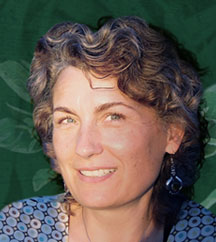
Chanchal Cabrera, MSc, FNIMH, (RH)AHG, has been a member of the National Institute of Medical Herbalists (UK) since 1987 and obtained her MSc in Herbal Medicine at the University of Wales in 2003. Her clinical specialty is helping people manage cancer.
Chanchal held the faculty chair in Botanical Medicine at the Boucher Institute of Naturopathic Medicine in New Westminster from 2004 – 2017. She serves on the board of advisors of Dominion Herbal College in Burnaby, British Columbia, on the editorial board of Medical Herbalism clinical newsletter, and she publishes widely in professional journals and lectures internationally on medical herbalism, nutrition, and health. Chanchal is the author of the book, Fibromyalgia: A Journey Toward Healing, published by Contemporary Books. She’s a certified master gardener and a certified horticulture therapist.
Chanchal lives on Vancouver Island, British Columbia, where she and her husband manage Innisfree Farm and Botanic Garden, a seven acre sanctuary devoted to medicinal herbs. They grow over 200 medicine and food plants, provide therapy gardens and programs for people with disabilities, host events and retreats, and run internships in organic farming and herbal medicine. The gardens are open to the public weekends in the summer.
Frequently Asked Questions
Q: What is your refund policy?
A: Your satisfaction with The Shift Network and this course is our highest priority! We offer a satisfaction guarantee for a full two weeks so that you can try out the course risk-free. The deadline to receive a refund is 2 weeks from your date of purchase. To request a refund, please click here to submit your Refund Application Form. Your refund will be processed within five business days and we will send you an email confirmation when your refund has been completed. However, we’d love to have a chance to address and resolve your concerns first. If there is something we can assist you with, please email us at support@theshiftnetwork.com, and we’ll be happy to help!
Q: How can I reach Customer Support?
A: Please visit our Customer Support Center, where you should be able to find the answer to your question or the solution to a problem. And if you can’t, you can submit an online request form and we’ll get right back to you.

